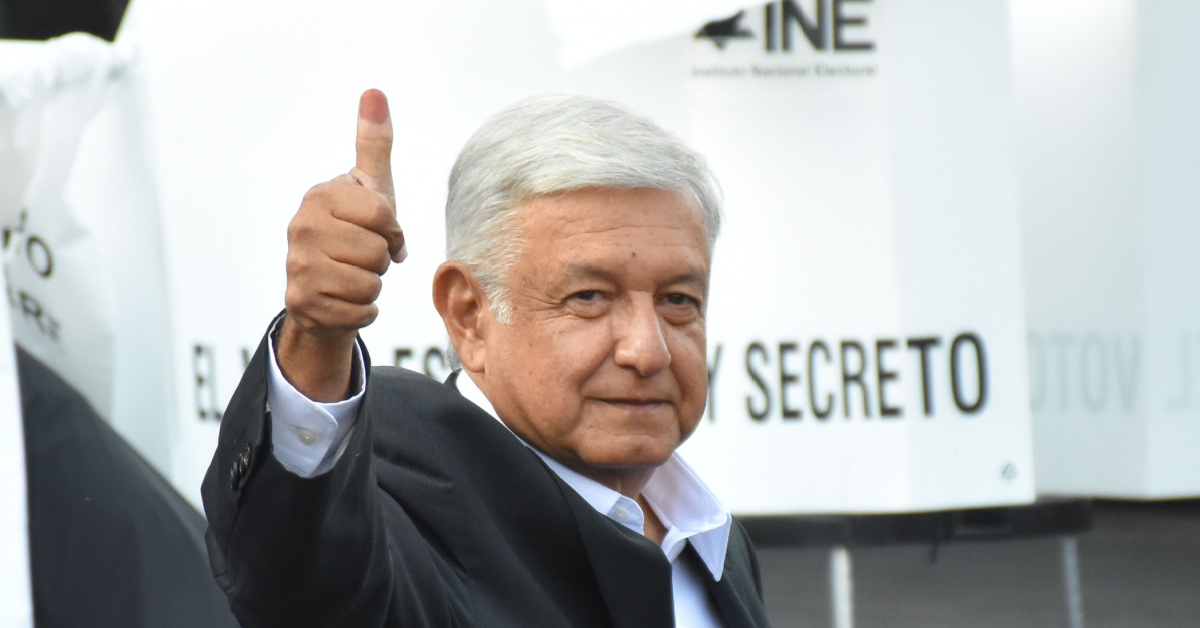Mexico’s Big Ask: Deport Everyone, Just Not to Us

In a move that could only happen in today’s upside-down world, Mexican President Andrés Manuel López Obrador (AMLO, as he’s affectionately called) has decided to ask President-elect Donald Trump for a little favor. What does Mexico want? No, not a border wall refund or a renegotiation of NAFTA 2.0. They want the United States to deport non-Mexican migrants directly back to their home countries instead of sending them to Mexico. Yes, the same Mexico that’s been so vocal about its “humane” approach to immigration suddenly wants to make sure it’s not the final stop for those fleeing Central America.
Here’s the kicker: AMLO’s request is being framed as a way to “manage border challenges effectively.” That’s bureaucratic speak for “we don’t want to deal with the mess anymore.” And who can blame them? Mexico has been bearing the brunt of the Biden administration’s open-border policies, with thousands of migrants stranded in its border towns, overwhelming local resources, and creating a humanitarian crisis. But let’s not pretend that Mexico’s government suddenly developed a soft spot for border security. This isn’t about solving the problem—it’s about passing the buck.
Think about it: for years, Mexico has enjoyed the perks of its unique position as a transit country. They’ve allowed migrant caravans to move freely through their territory, encouraged by non-governmental organizations and a wink-and-nod approach from their own government. The understanding was always that these migrants were the United States’ problem, not theirs. But now that Trump is back on the horizon, AMLO seems to realize that the party might be over. Trump’s promise to restore order at the border has Mexico scrambling to avoid being stuck holding the bag.
What’s fascinating is how this aligns with Trump’s longstanding position on immigration. For years, he’s argued that countries like Mexico and Guatemala need to take more responsibility for their role in the migration crisis. Now, Mexico is essentially admitting that he’s right—just not in so many words. They want the U.S. to shoulder the logistical and financial burden of sending migrants back to their home countries, sparing Mexico the hassle of dealing with deportees who have no legal ties to their nation.
But let’s not give AMLO too much credit here. This request isn’t about principles or border security; it’s about optics. Mexico’s president doesn’t want to deal with the political fallout of migrants stuck in limbo within his borders. Deporting them to their home countries bypasses the awkwardness of Mexico having to admit that its own policies have failed. It’s a classic case of deflection, dressed up as cooperation.
And what about the migrants themselves? The media loves to paint them as victims of cruel U.S. policies, but let’s not ignore the role of their own governments in this crisis. Corruption, violence, and economic mismanagement in places like Honduras and El Salvador are the root causes of this exodus. Yet, somehow, the blame always seems to fall squarely on the United States. AMLO’s proposal does nothing to address these systemic issues—it just shifts the immediate problem onto someone else’s plate.
The irony, of course, is that AMLO’s request could actually play into Trump’s hands. The president-elect has long been a proponent of streamlining deportations and holding other nations accountable for their role in the migration crisis. If Mexico is willing to work with the U.S. on direct deportations, it could pave the way for broader cooperation on border security—a win for Trump and his agenda. But don’t expect the mainstream media to frame it that way. They’ll spin this as yet another example of Trump’s “cruel” immigration policies, conveniently ignoring the fact that Mexico is the one making the request.
At the end of the day, AMLO’s proposal is a reminder of how complex and interconnected the immigration issue really is. It’s not just a U.S. problem or a Mexican problem—it’s a regional crisis that requires honest dialogue and real solutions. But as long as leaders like AMLO continue to prioritize optics over substance, we’re unlikely to see meaningful progress. For now, we can only watch as Mexico tries to pass the buck and hope that Trump uses this opportunity to push for the kind of reforms that have been long overdue. After all, someone has to take this seriously—and it sure isn’t going to be Mexico.
